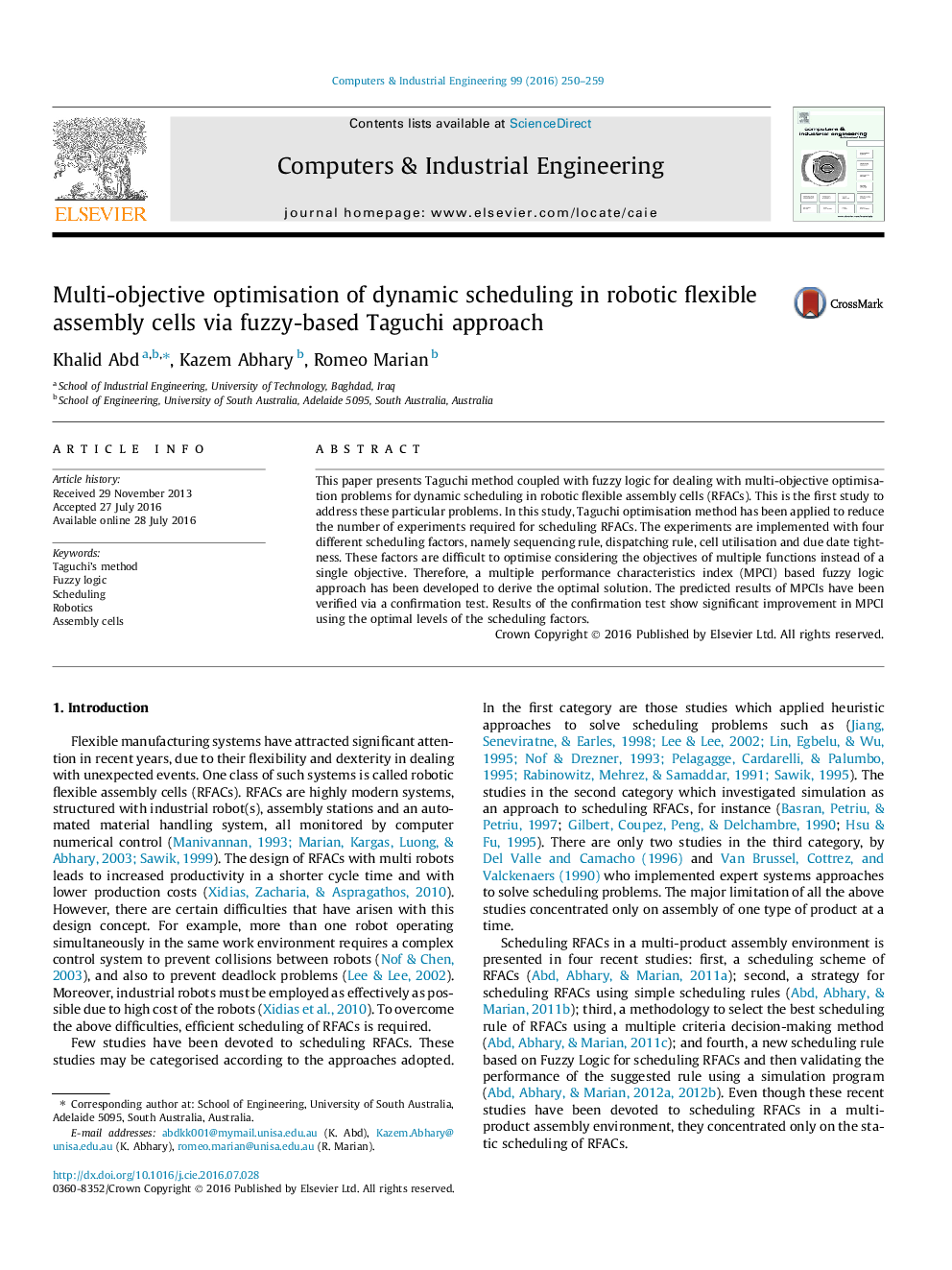| Article ID | Journal | Published Year | Pages | File Type |
|---|---|---|---|---|
| 1133254 | Computers & Industrial Engineering | 2016 | 10 Pages |
•To our knowledge, this is first study that addresses dynamic scheduling in RFACs.•Cell utilisation and due date tightness are the significant scheduling factors.•Percentage of prediction error (9%) confirms the efficient of proposed methodology.•The results of confirmation run improved by 11% compared to initial experiments.
This paper presents Taguchi method coupled with fuzzy logic for dealing with multi-objective optimisation problems for dynamic scheduling in robotic flexible assembly cells (RFACs). This is the first study to address these particular problems. In this study, Taguchi optimisation method has been applied to reduce the number of experiments required for scheduling RFACs. The experiments are implemented with four different scheduling factors, namely sequencing rule, dispatching rule, cell utilisation and due date tightness. These factors are difficult to optimise considering the objectives of multiple functions instead of a single objective. Therefore, a multiple performance characteristics index (MPCI) based fuzzy logic approach has been developed to derive the optimal solution. The predicted results of MPCIs have been verified via a confirmation test. Results of the confirmation test show significant improvement in MPCI using the optimal levels of the scheduling factors.
